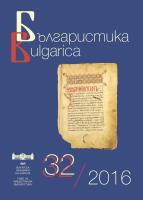
We kindly inform you that, as long as the subject affiliation of our 300.000+ articles is in progress, you might get unsufficient or no results on your third level or second level search. In this case, please broaden your search criteria.

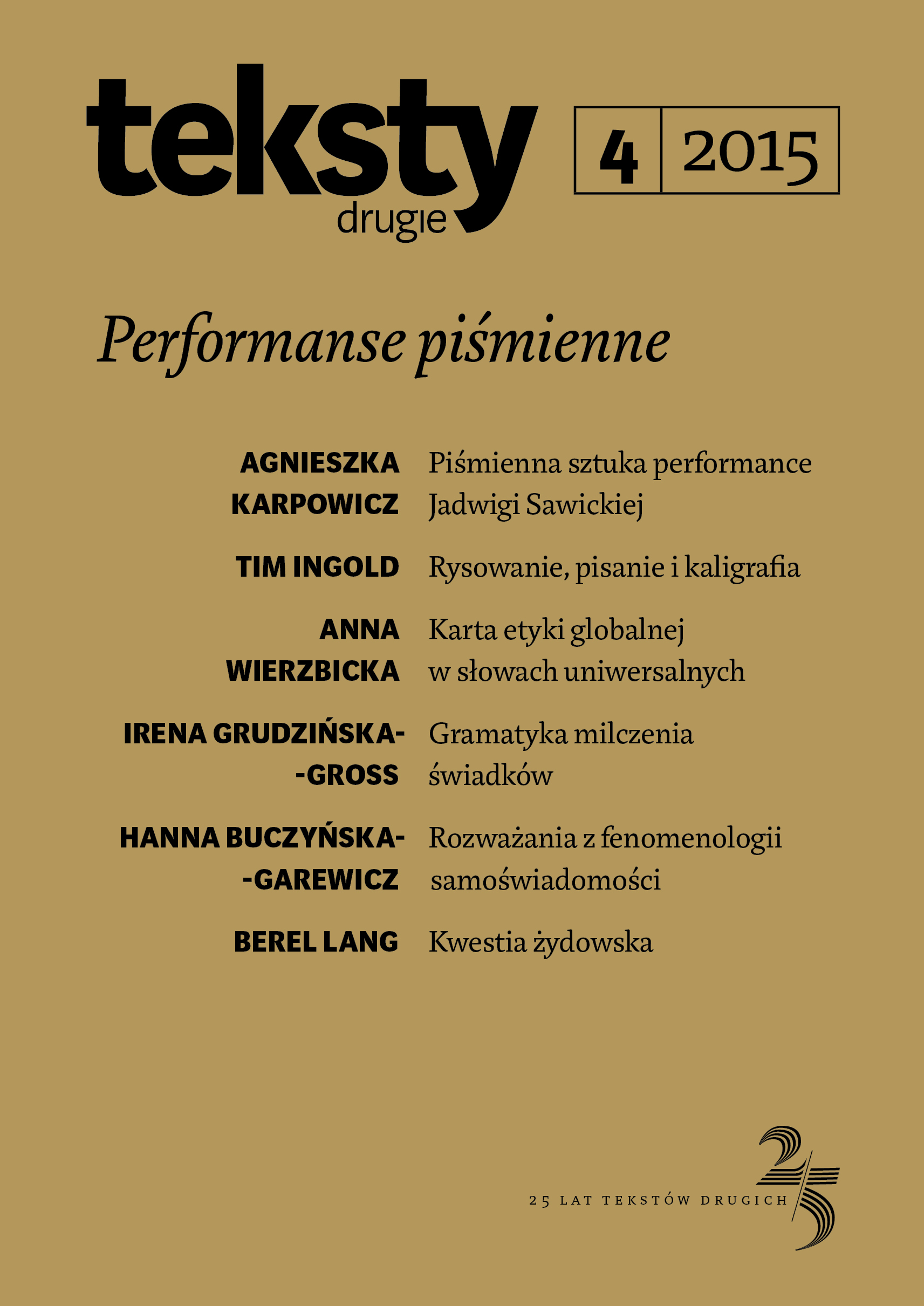
Parfianowicz-Vertun examines the role of literacy practices and verbal creativity in Czech underground culture. She focuses on ways in which underground artists used writing and the written words; the tension between writing and alternative culture, which was largely based on the spoken word; as well as situations in which the act of writing became a performance of sorts. The article explores various aspects of underground culture: music, poetry, fine art and samizdat publishing.
More...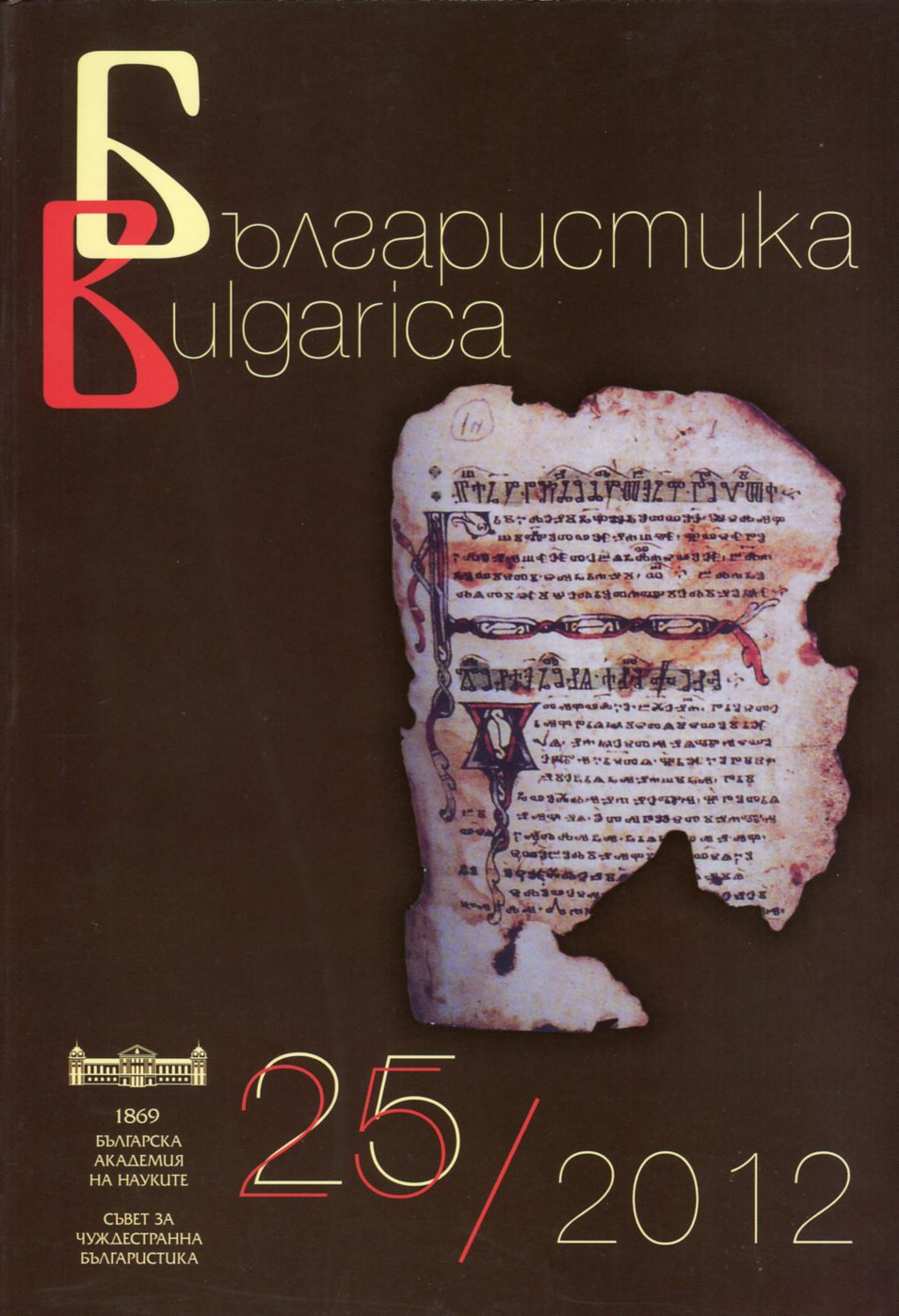
Selected bibliography in the field of Bulgarian Studies published in the current year
More...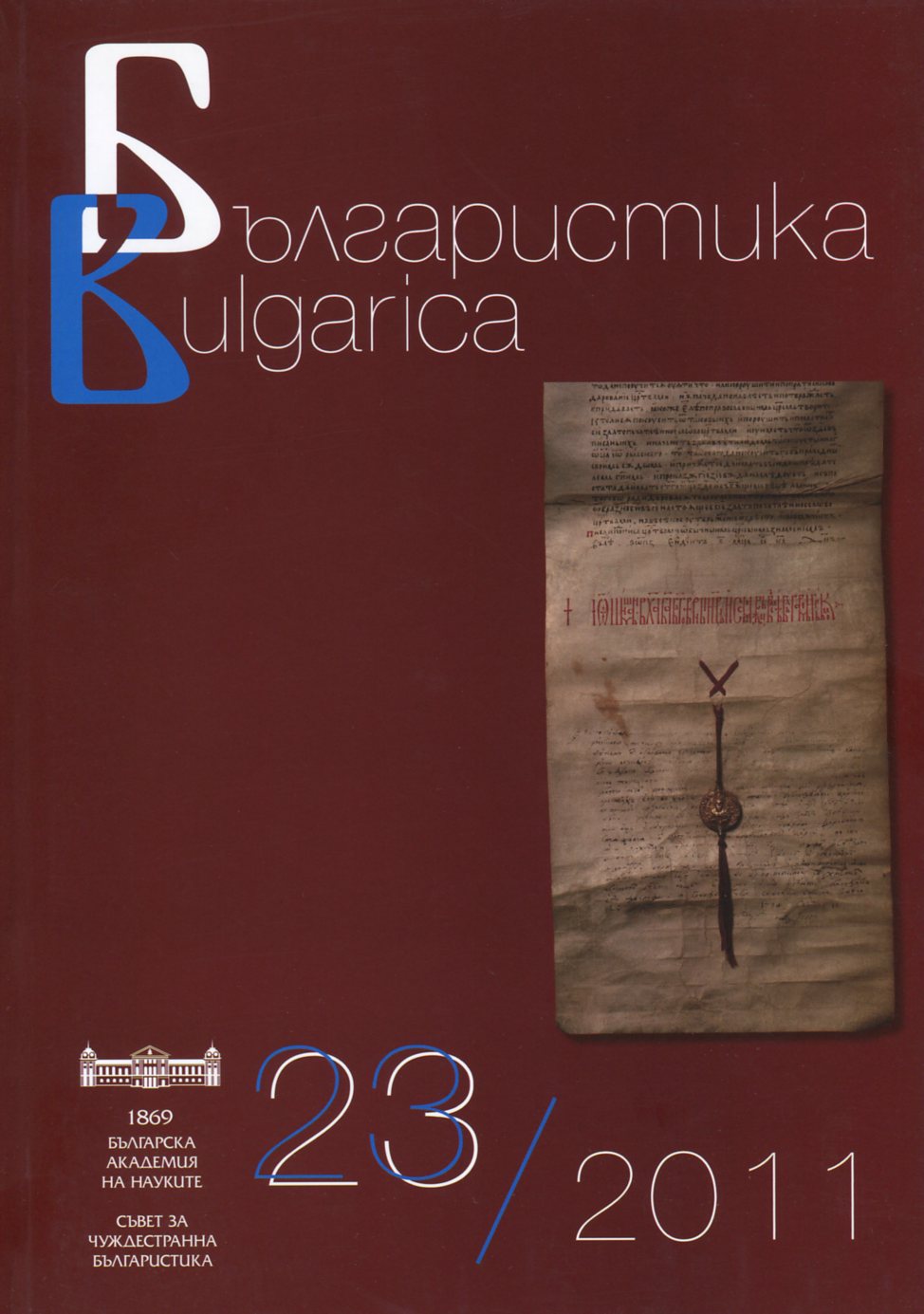
Defended PhD theses in Bulgaria in the field of linguistics, literature, history, folklore, ethnography and art studies
More...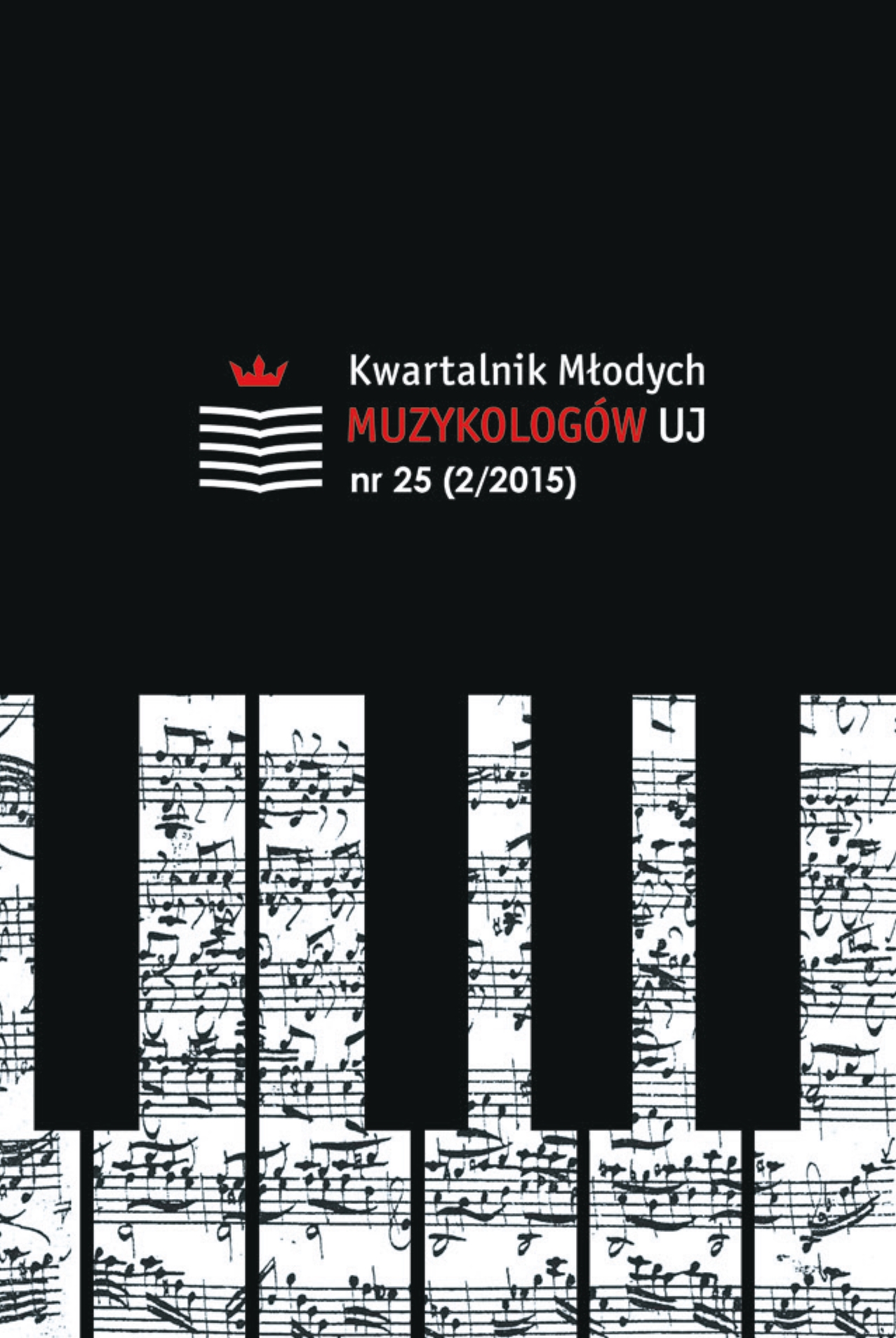
„La buona figliuola” („The Accomplish’d Maid”) is an opera buffa in three acts by Niccolò Piccinni and Carlo Goldoni. The librettist based his text on Samuel Richardson’s novel „Pamela, or Virtue Rewarded”. It was performed for the first time at the Teatro delle Dame, Rome on 6th February 1760 with an all male cast. It was a big success and „La buona figliuola” took Europe by storm. Every European opera house had this opera in its repertoire. The performances were in: Barcelona, Prague, Vien, Dresden, London, Berlin, Mannheim and Paris. This opera was probably performed even in Beijing by Jesuits in 1778. „La buona figliuola” was so popular in Europe that Stanisław August Poniatowski, the King of Poland, wished it for his coronation ceremony. The performance took place at the National Theatre on 7th August 1765, just five years after the world premiere. This opera was also very popular in Warsaw. People loved the story of a simple and good maid Cecchina. Seventeen years later, Wojciech Bogusławski, the director of the National Theater, translated and adapted Goldoni’s opera and named it „Czekina albo cnotliwa panienka” („Czekina or a Virtuous Maid”). He performed it in 1782 with big success. First of all, the article describes the historical context of the creation of libretto – the Carlo Goldoni’s biography. Next, it presents the story of maid Cecchina and the phenomenon of the description of the Polish theories of translation from the 18th century, the Polish version of the opera – „Czekina or a Virtuous Maid”, is presented. Finally, two versions of the libretto – the Goldoni’s and the Bogusławski’s, are compared.
More...
The paper considers the problem of personality development of young people in the Russian literature of the 18th–21st centuries. The continuity of the traditions established in the Russian literature of the 18th–19th centuries is observed based on the autobiographical prose of M.N. Murav’ev (“An Inhabitant of the Suburbs”), S.T. Aksakov (“The Childhood Years of Bagrov Grandson”, “The Family Chronicles”), V.P. Krapivin (“The Sixth Bastion”), F.A. Kamalov (“Hello, Artem!”), and B.G Weiner (“A Lapwing along the Road”). These authors refer in their works to the acute problems of childhood and adolescence: moral and spiritual development of the young person, confrontation between the good and evil among children and in their souls, questions concerning protection of the world of children from adults, and relationships between adults and children. The conclusion is made that modern literary works addressed to children form a sustained interest in reading by motivating to it in enjoyable, playful, and seriocomic manner. They proclaim the positive role of books in the development of moral qualities of children and adolescents.
More...
The present paper for the first time deals comprehensively with the problem of Russian educational realism as a system in the national literary culture of the 1760s–1820s in the context of basic literary discussions of the second half of the 20th and the beginning of the 21st centuries. The hypothesis of the core role of this phenomenon in the development of Russian literature at the turn of the 18th–19th centuries, its syncretical orientation, as well as genre and thematic character is introduced. The prognostic conclusions about the holistic ideology of educational realism in Russia from the perspective of the leading concepts of rationality/emotionality, duty/ virtue, value of a human person without regard to their social class are drawn on the basis of a wide range of historical-literary and literary-theoretical materials. Furthermore, ways of finding prospects for investigating ideologemes of the educational realism and the Enlightenment in the focus of the so-called “middle culture” tasks in its genesis and development are also outlined in the paper. Autonomy of the genre system of the educational realism movement with interpenetration of prose, poetry and drama, which is peculiar to it, is proved in the paper under review on the basis of the most recent scientific data. The structure of the present paper is defined in line with the described research paradigms and obtained analytical results. A systemic review of the basic discussions in literary studies on the phenomenon of educational realism, its existence and meaning is given in its first part. Dwelling on the concepts of both adherents of this idea and its opponents, the author of the article comes to the conclusion about the crucial significance of the concepts of “educational realism”, in particular in the Russian historical-literary process of the last third of the 18th–the first decades of the 19th centuries. Educational realism is one of the key embodiments of the Enlightenment in Russian literature, the first stage of realism development as artistic vision, and the unique epilogue of the national literary culture of the 18th century. The second section of the paper is devoted to analysis of the ideological and thematic, philosophical and esthetical levels of the Russian educational realism system in the context of generating tasks of the “middle culture” of that time. The author’s position on the problem of genre systematicity of the national educational realism of the period of interest is proposed in the third (concluding part) of the work.
More...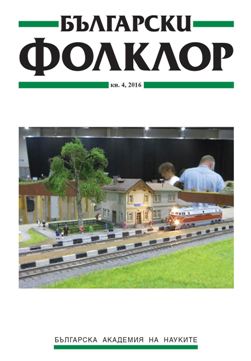
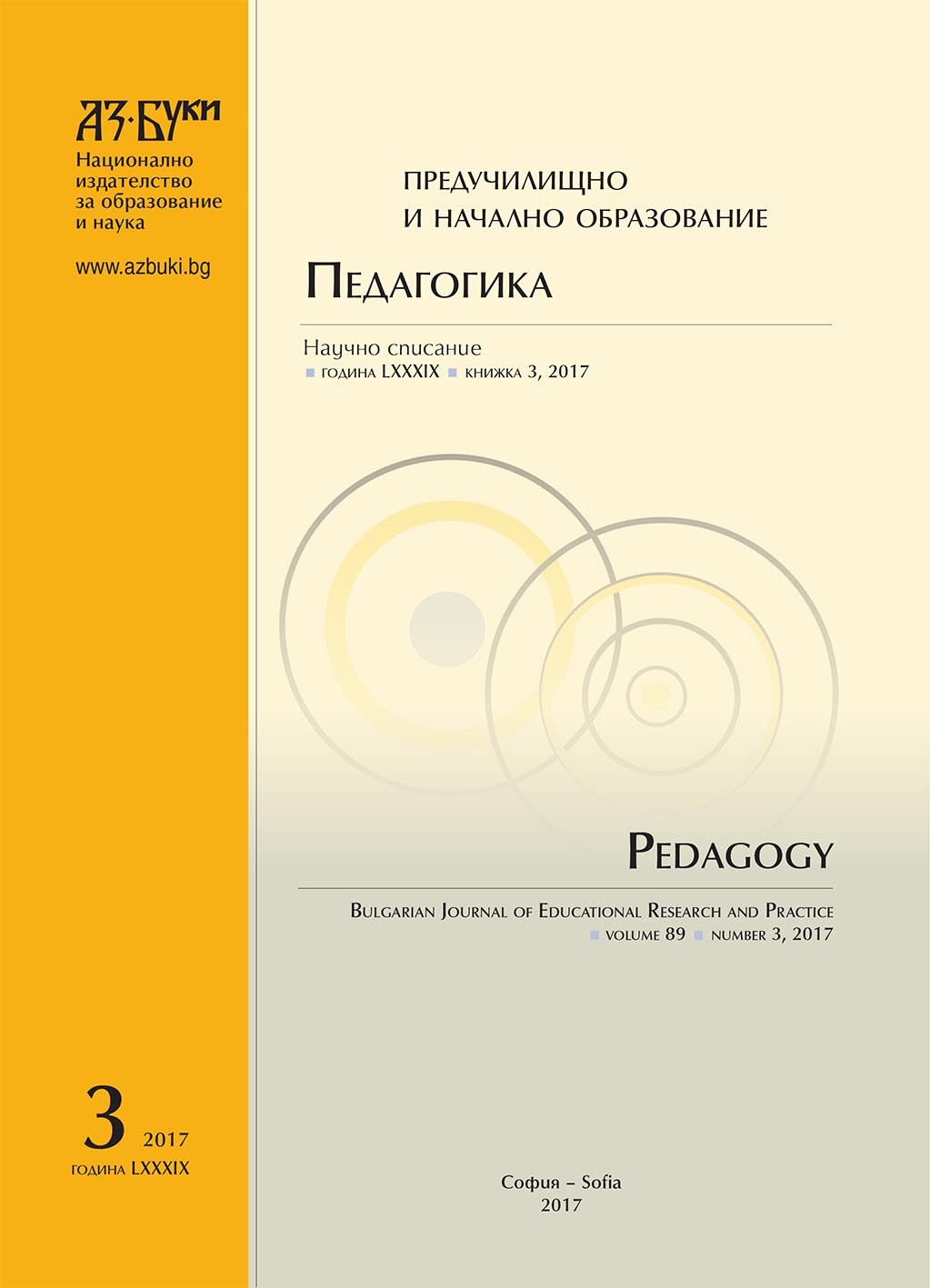
This publication presents a research on students – future teachers – and their pedagogical skills in terms of theoretical and practical musical training. Some points of view on the current topic are considered in the theoretical part. The result of the theoretical research on the problem has been determined by the nature of the musical and pedagogical skills. The opportunities for assessing student’s pedagogical skills at theoretical and practical trainings are displayed in the practical-applying section. The methods, used in this research are: theoretical analysis of the literature on the studied problem, qualitative analysis of results from the research, relative to the musical practical preparing of students from the Primary School Pedagogic.
More...
The children are unique and unforgettable future personalities and should not stay outside the processes of our time as they learn from life. They should not live in an atmosphere of criticism, hostility, ridicule and shame, but in an atmosphere of tolerance, encouragement, praise, integrity, safety, goodwill, friendship and love. The analysis of the current state of Bulgarian education highlights the large number of excluded and drop-out children. In Bulgaria it is observed alarmingly high percentage of children of compulsory school age who are not included in the education system or eventually drop out later. Greater is the share of children at risk, particularly among Roma population.
More...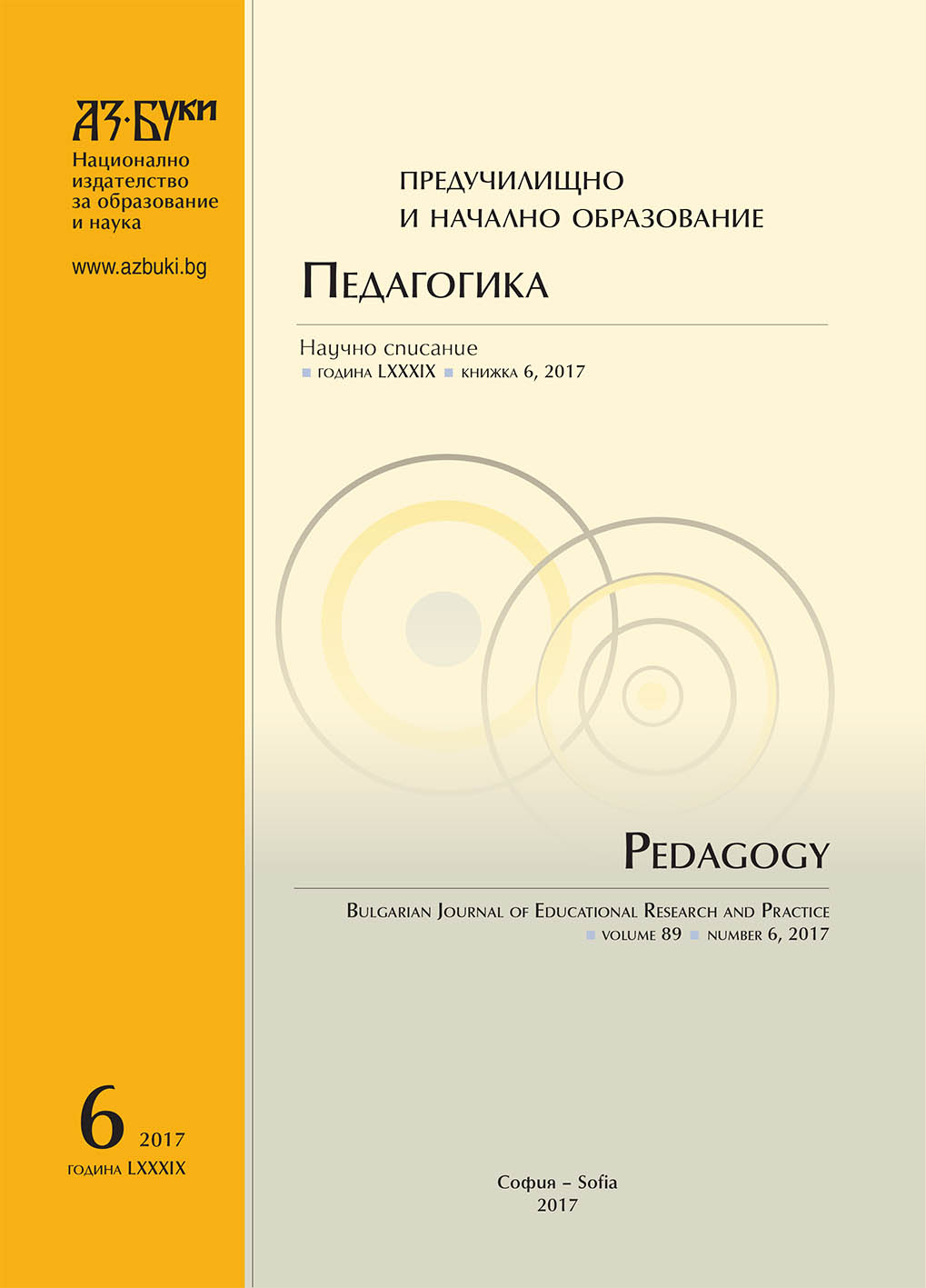
The study examines the values of some students in Zlatitsa Municipality by diagnosing their cognitive activity. In meaningful aspect components, factors, terms and conditions forming the face of their value scope are considered. Some rules for prosperous life, stemming from the teachings of God, are highlighted. The results are recorded, analyzed and described as a real consequence of the modern way of thinking and behavior of young people. There stands out the need for knowledge of God and building a system of values in family and school – based on Orthodox catechism and education.
More...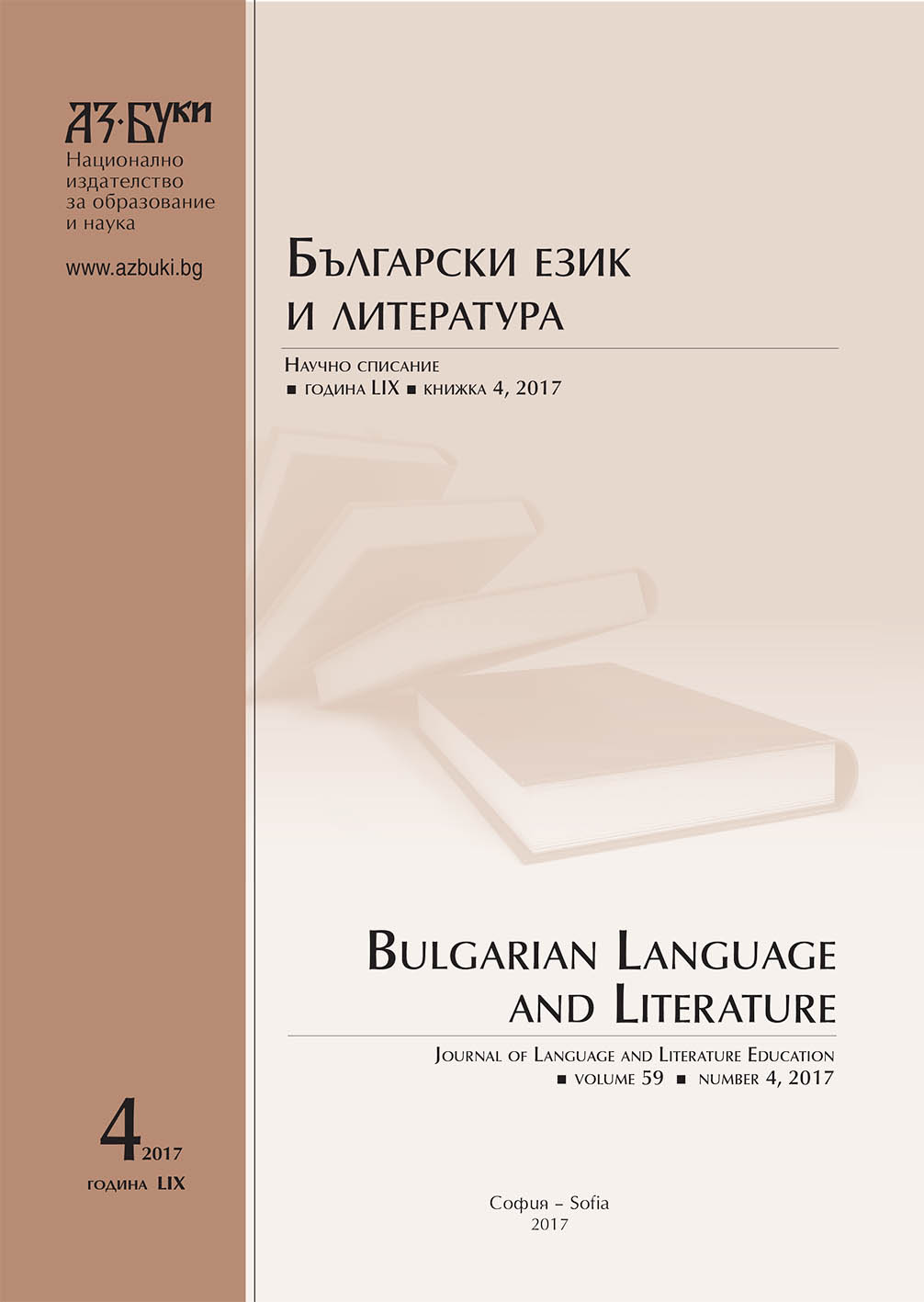
The article analyses the adverb in the first Bulgarian dictionary – „Slovary bolagrskogo yazika…“ (1885 – 1889) by the russian scientist Alexander Duvernois. For this purpose are used descriptive, comparative-historical and statistical methods. Article, focused on the adverb, is presented – key word, grammatical qualifier (notes), explanatory part and illustrations. Adverbs in the dictionary are classified according to their construction (simple, сompound, derivational) and origin (from adjectives, nouns, verbs, numerals). Different types of pronominal adverbs (interrogative, relative, indefinite, negative, summary and demonstrative) are reviewed.
More...
One of the leading methodological linguistic trends of the past 20th century is undisputedly linguistic structuralism. The Prague school, also known as the Prague linguistic circle, is one of the first structuralist linguistic schools, being properly defined as functionalist in its essence. Representatives of the Prague school from its classic period (1926 – 1945) and their disciples in the late 20th century give their invaluable contribution to worldwide development of linguistics. The text examines those key concepts of Prague functional structuralism that substantially contributed to the formation and development of functional grammar as we know it in the works of A. V. Bondarko and I. Kutsarov. First, it is R. Jakobson’s concept of binarism, also known as the theory of markedness, that plays a key role in the development of modern linguistics, underlying the morphological concepts of A. V. Bondarko and I. Kutsarov that represent the relations between grammemes of morphological categories through morphological oppositions. Second, the Prague structuralists developed the functional approach to linguistic phenomena and the theory of centre and periphery in language. Both are uniquely elaborated in Bondarko’s functional theory of semantic fields underlying his theory of functional grammar. The latter was not only promoted but also successfully implemented by I. Kutsarov in Bulgaria. And last but not least, much like the Prague linguistic circle, A. V. Bondarko, I. Kutsarov and their disciples evaluate the theoretical significance of synchronic and contrastive studies. Functional grammar, which is to meet many more scientific challenges in the future, undisputedly applies to the study of a particular language as well as to contrastive studies.
More...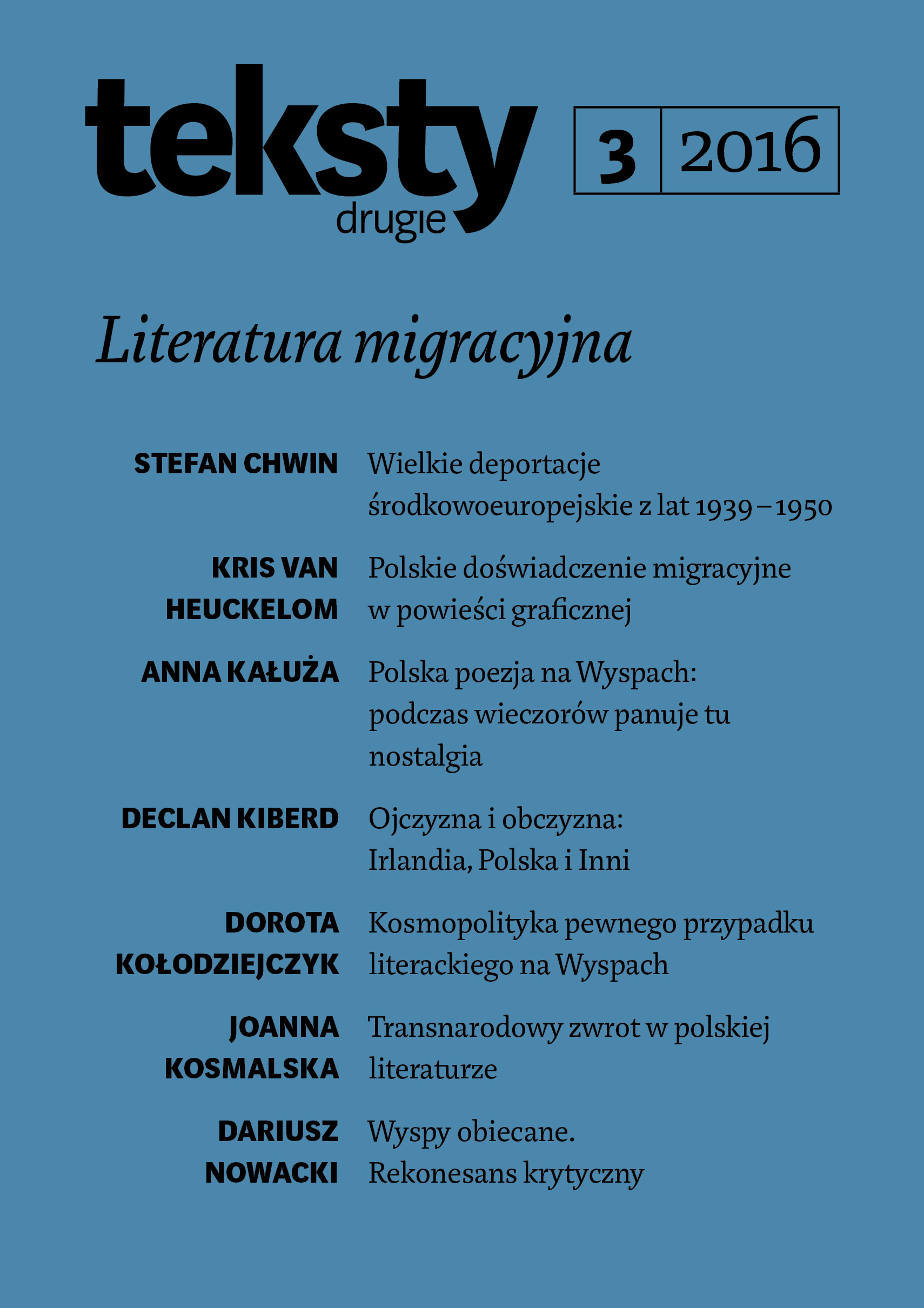
The article explores the shaping of narrators’ polyphonic identities in texts produced by Polish migrants temporarily residing in the UK and Ireland. Examining dozens of works produced between 2004 and 2015, Ślósarska tackles identity in relation to the fundamental determinants of self-narrative strategies. Her methodology is rooted in symbolic interactionism, standard patterns of biographies, and self-narration as a way of understanding and interpreting the world. Her conclusions focus on the function of self-narration in reconstructing individual and ethnic identities by migrants looking for new patterns of adaptation in unstable existential situations; the axiologization of the new experiences is discussed in relation to ethnic cultural memory and to the social and family identity roles developed earlier in life.
More...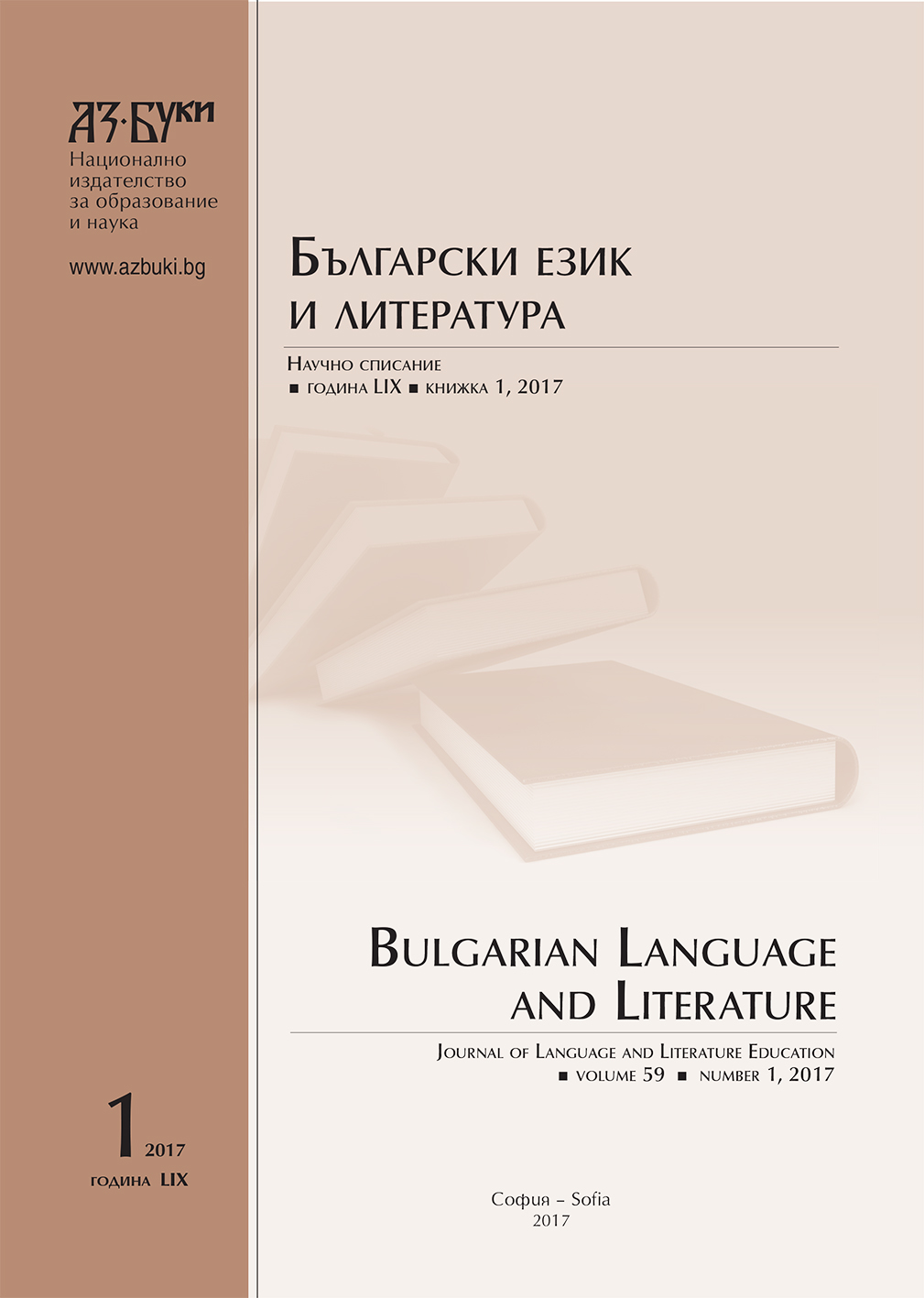
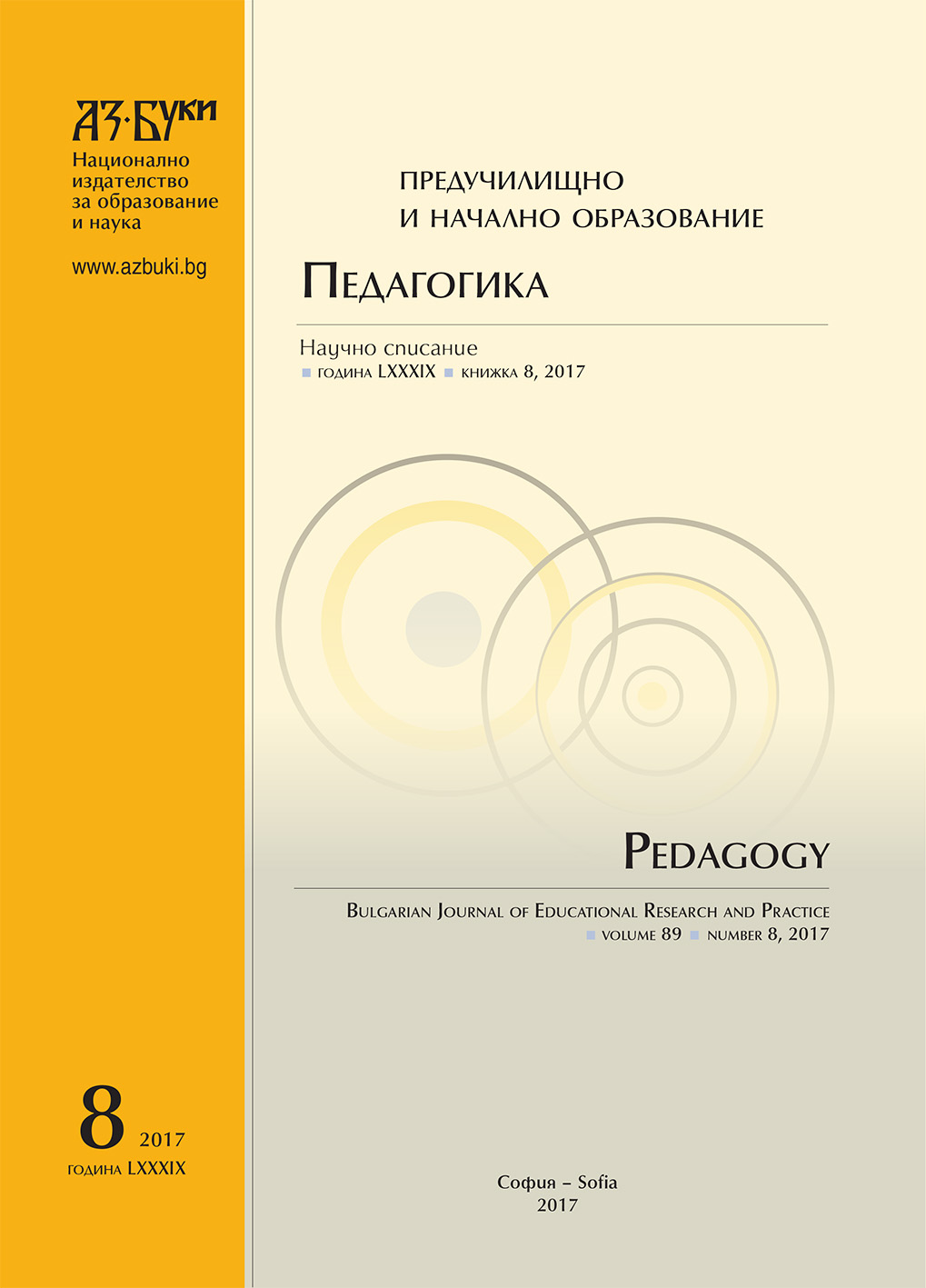
Through a survey with primary teachers, who are educating children of Roma ethnic origin from their very first day at the primary school, are emerging basic challenges in the process of mastering the Bulgarian script. Systematization of conclusions and recommendations are made.
More...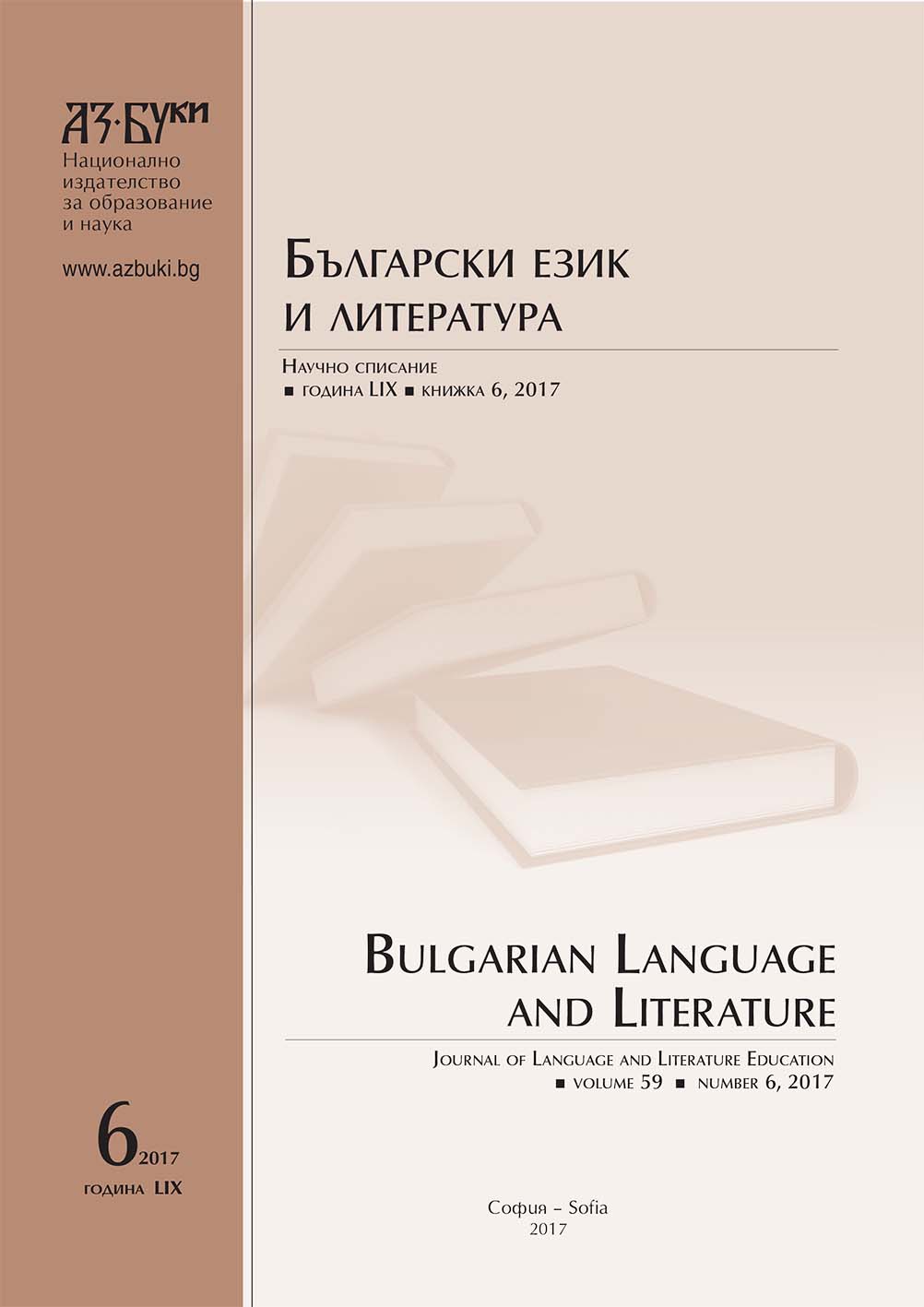
The paper examines the place of dialect speech in contemporary Bulgarian oral communication as well as in the language of literary works included in curricula. The question of the need to study the dialect element in the language, which is related to the perception and analysis of the text is considered. Some examples of learning tasks that can serve to develop these skills are given.
More...
This paper gives an insight into the development of the Bulgarian Language Sunday Schools in the UK as promoters of the mother tongue and culture. The focus is on their features and benefits. In particular, the most important issues related to these Bulgarian organisations (such as the increase of the number of the schools and the reason behind this, their connections with mainstream schools and some of their problems) are discussed. At the same time, it is acknowledged that most of these issues need further in-depth studies.
More...
Pragmatics has a very important role in understanding how advertising texts communicate and persuade beyond explicit messages. This paper investigates the frequently used strategies in food advertisements to influence the consumer's behavior and fasten decision-making processes. Through a qualitative approach, the current paper analyzes a diverse corpus of digital media food advertising texts. Implicature, presupposition, deixis, speech acts, and relevance are identified and analyzed by highlighting how these strategies create emotional responses, reinforce cultural values, and establish common assumptions between advertisers and consumers.This research proves that implicature is generally used in suggesting benefits and qualities that are not directly stated; presuppositions deepen the assumption about the health advantages or the quality offered by a product without claiming it. Deictic expressions and speech acts create personal relevance and psychological closeness through commands and invitations. Relevance theory shows how advertisers optimize the communicative impact. The study contributes to pragmatics, advertising, and consumer behavior by explaining how pragmatic strategies operate as powerful tools.
More...
In an increasingly globalized world, the development of intercultural skills is a priority in foreign language education. Language learning goes beyond mastering grammar and vocabulary; it also involves the ability to understand, respect, and interact with different cultures. In the context of French as a Foreign Language (FLE), the use of philosophical texts provides a unique opportunity to address universal questions while raising learners' awareness of diverse cultural perspectives. This article proposes a didactic approach aimed at developing these skills through the analysis and discussion of philosophical texts.
More...